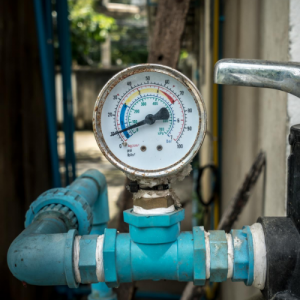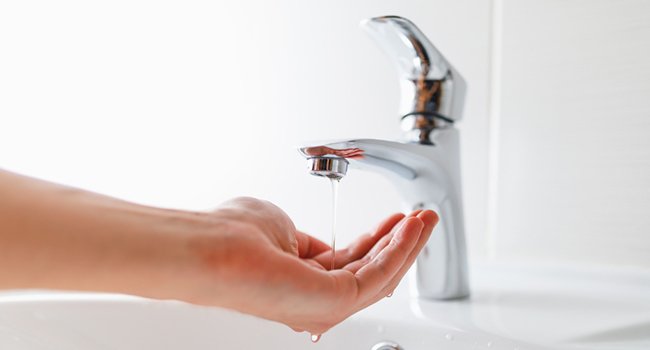Presented here in the next paragraphs you will find a good deal of wonderful guidance relating to 9 Reasons for Low Water Pressure in Your House.

Low water pressure in your house can be an aggravating issue, influencing everything from showering to washing dishes. If you're experiencing weak water flow, there are several possible reasons and solutions to explore. In this guide, we'll go over common factors for low water pressure and practical steps to address the concern successfully.
Intro to Low Water Pressure
Low water pressure happens when the circulation of water from your taps, showers, and various other components is weaker than common. This can make day-to-day jobs extra difficult and less effective. Recognizing the root causes of low water pressure is essential to discovering the ideal remedy.
Common Reasons For Low Water Stress
Faulty Pressure Regulatory Authorities
Pressure regulatory authorities are responsible for maintaining consistent water pressure in your home. If they malfunction, it can lead to low water stress or irregular circulation throughout your home.
Metropolitan Water System Issues
In some cases, the problem lies outside your home. Municipal water concerns, such as main line leaks or maintenance work, can momentarily minimize water pressure in your area.
Pipe Obstructions
Over time, pipes can come to be blocked with natural resource, debris, or particles, limiting the circulation of water. This is a common problem in older homes with galvanized steel pipelines.
Deterioration
Deterioration within pipes can bring about leakages and decreased water stress. Rust build-up can tighten water circulation, especially in maturing plumbing systems.
Just How to Detect Low Water Stress
Examining Pipelines
Check noticeable pipes for indicators of leaks, deterioration, or blockages. Take note of any uncommon sounds, such as knocking or rattling pipelines, which can show problems within the plumbing system.
Consulting with a Plumber
If you're unable to identify the root cause of low water pressure, take into consideration working with a specialist plumber to carry out a thorough assessment. They can identify underlying concerns and suggest proper options.
Inspecting Faucets and Fixtures
Beginning by evaluating the water pressure at different taps and components throughout your home. If the problem is separated to particular areas, it might suggest localized issues.
Do It Yourself Solutions to Take Care Of Low Water Stress
Flushing Water Heater
Sediment buildup in the hot water heater can limit flow and lower performance. Purging the storage tank occasionally assists get rid of debris and preserve ideal efficiency.
Examining Pressure Regulator
Guarantee that the pressure regulatory authority is working properly. Changing or replacing the regulator can aid restore appropriate water pressure throughout your home.
Cleansing Aerators and Showerheads
Natural resources can collect in aerators and showerheads, reducing water circulation. Eliminate and cleanse these components consistently to enhance water pressure.
Clearing Up Clogs in Pipes
For minor blockages, attempt making use of a plumbing snake or chemical drain cleaner to clear obstructions in pipelines. Beware when making use of chemicals and follow safety guidelines.
When to Call a Specialist Plumber
If DIY efforts fail to solve the problem or if you suspect substantial plumbing troubles, it's best to look for support from a licensed plumber. They have the expertise and tools to deal with complex concerns securely and efficiently.
Preventive Measures to Keep Water Pressure
Setting Up a Pressure Booster
Think about installing a stress booster pump to boost water stress in areas with regularly reduced flow. This can be specifically useful for multi-story homes or properties with high-demand components.
Tracking Water Usage
Bear in mind water usage practices and avoid overtaxing the plumbing system. Basic modifications, such as astonishing showers and laundry tons, can aid preserve appropriate water stress.
Routine Maintenance
Schedule routine upkeep for your plumbing system to prevent issues such as rust, leaks, and blockages. Dealing with minor troubles early can assist avoid even more considerable repairs later.
Conclusion
Managing low water stress can be frustrating, however recognizing the underlying causes and carrying out appropriate services can bring back optimum flow throughout your home. Whether it's cleaning aerators, examining pipelines, or talking to a plumber, taking proactive steps can make certain a consistent supply of water for your day-to-day demands.
FOUR WAYS TO FIX LOW WATER PRESSURE NOW
Turning on a shower or faucet only to find the water comes out in a sad, slow drizzle is never a good feeling. How exactly are you supposed to wash a pan or take a quick shower when it takes 10 minutes just to rinse off a little soap? The good news is that when your water pressure is bad, there's always a cause: typically one that can be easily fixed. Here are some of the most common causes of low pressure and what you can do to fix the issue:
DEBRIS AND MINERAL DEPOSIT BUILDUPS
If you notice low water pressure from just one or two of the fixtures in your house, the problem likely has to do with debris buildup. Water is full of minerals and other debris, all of which can accumulate in your pipes and on your fixtures. This can cause a blockage that affects how much water flows through. To fix this, try filling a small plastic bag with white vinegar, and use a rubber band to hang it around your showerhead or faucet. Let the head of the fixture soak for a few hours, and the vinegar should loosen the deposits.
WATER LEAKS
Leaks are another common cause of low water pressure. If water is flowing out of your plumbing through a hole or crack before it can reach your fixture, the pressure coming out of the faucet or showerhead will be lower. A plumbing professional is your best bet for finding and repairing a leak in your water supply pipes.
Leaks are another common cause of low water pressure. If water is flowing out of your plumbing through a hole or crack before it can reach your fixture, the pressure coming out of the faucet or showerhead will be lower. A plumbing professional is your best bet for finding and repairing a leak in your water supply pipes.
A VALVE ISSUE
If you have low water pressure throughout your home, check your main shut-off valve to make sure it's completely open. You may also want to see if there's a pressure-reducing valve installed. If there is, have a plumber help you adjust the settings to get the pressure you're looking for.
OTHERS USING WATER
Believe it or not, your low water pressure could be caused by your neighbors. If you notice low pressure at certain times of day, it may be because you and the people living next to you have similar schedules - when everyone is showering at the same time, the pressure will be lower in every home. Low pressure throughout the neighborhood may also be caused by an issue with your municipal water supply. If that's the case, call the supplier to see if they're working on the issue.
https://www.rotorooter.com/blog/water-leaking/low-water-pressure-fixes/

As a passionate reader on 9 Reasons for Low Water Pressure in Your House, I figured sharing that post was essential. Be sure to set aside a second to distribute this blog post if you appreciated it. I am grateful for being here. Return soon.
Call